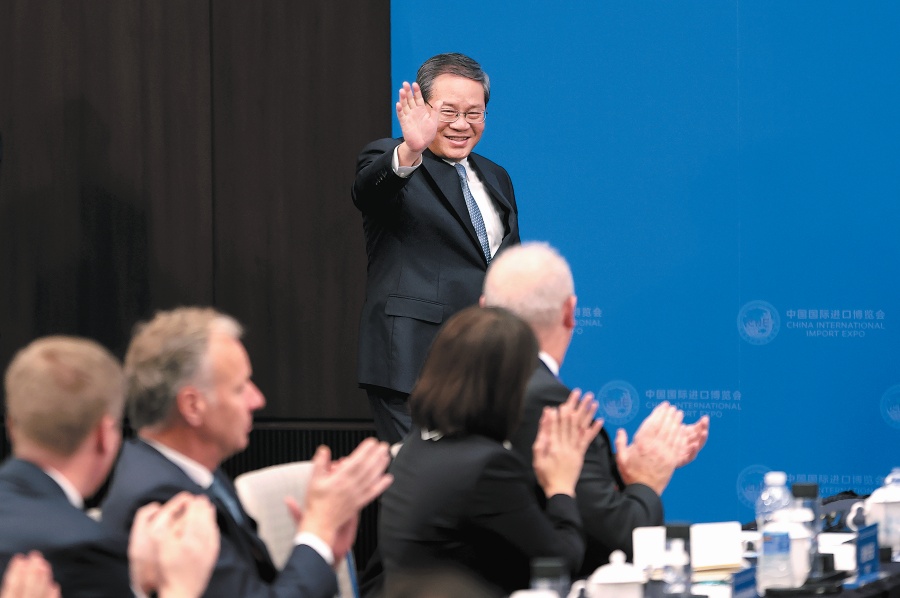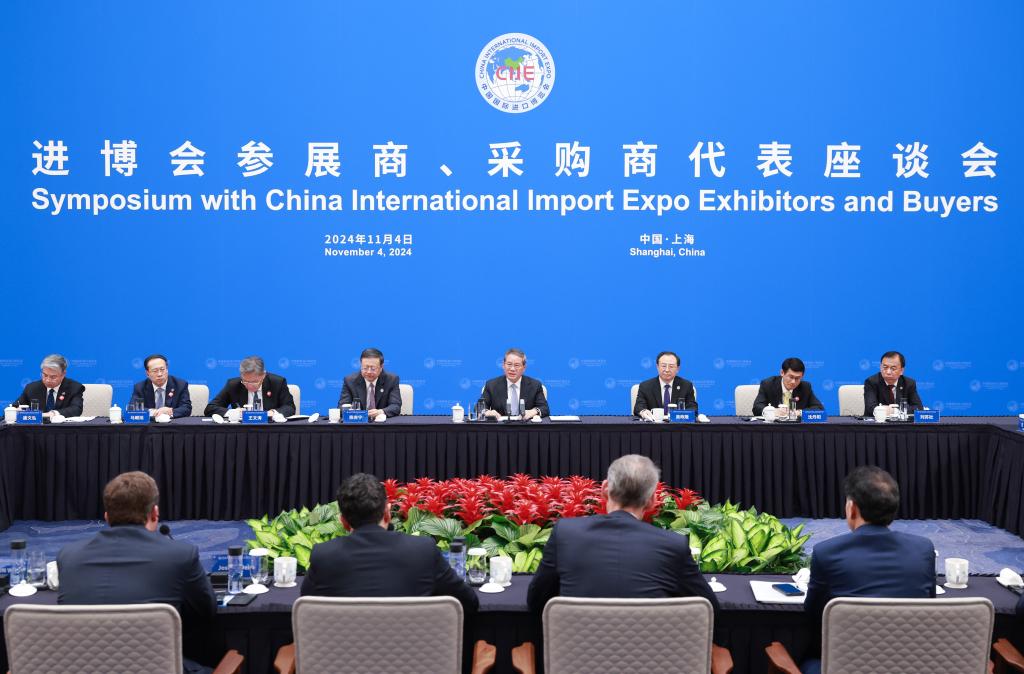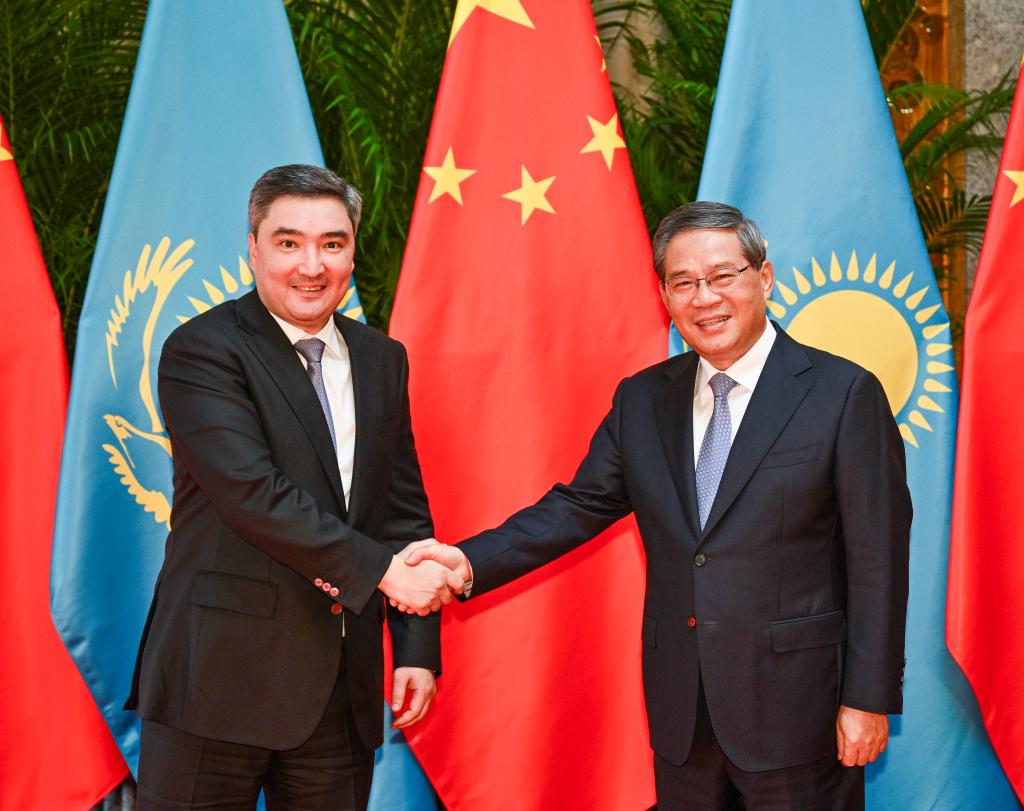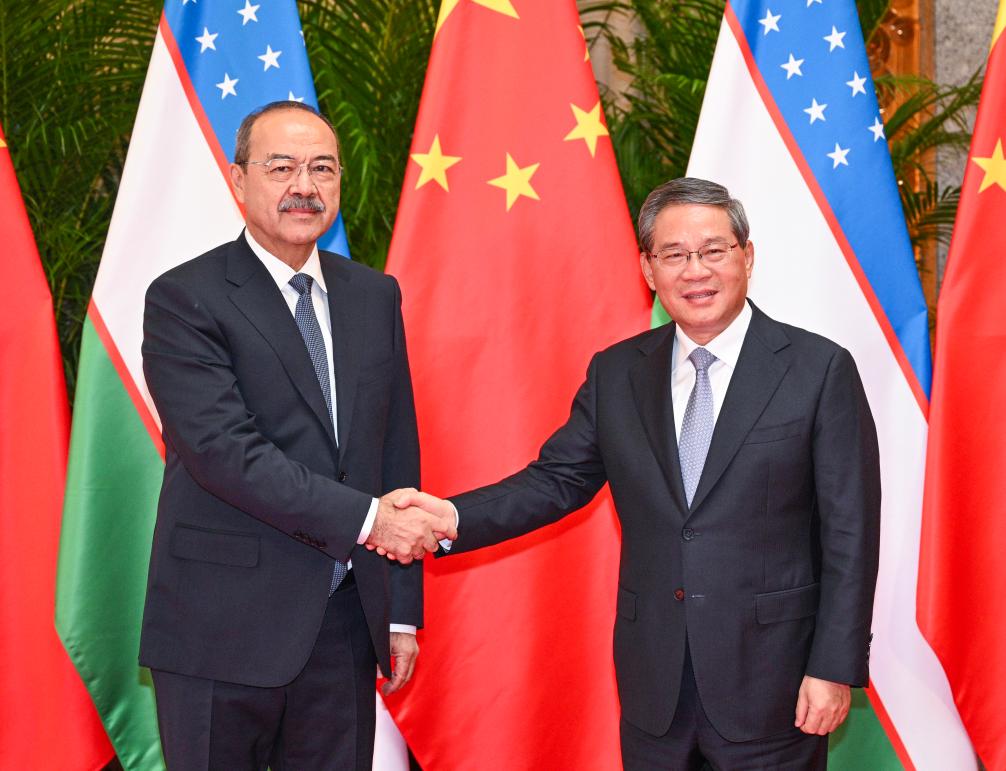
Premier Li Qiang reiterated on Monday that China is committed to expanding opening-up and improving the business environment, saying that the country will further widen market access and advance orderly openness in the sectors of telecommunications, education, culture and healthcare.
Li made the remarks in Shanghai when addressing a symposium attended by representatives of exhibitors and buyers at the seventh China International Import Expo, which is set to open on Tuesday.
He noted that the CIIE has evolved into an international public good shared by the world, as well as a crucial platform for China and the rest of the world to embrace each other to develop cooperation for win-win results.
No matter how the international landscape evolves, China will open its door wider and wider, Li said.
The premier emphasized that against the backdrop of sluggish global economic recovery and insufficient growth momentum, China's overall economic performance is generally stable with steady progress.
The country has the ability to drive the sustained upturn of its economy, expand and upgrade its market, and provide enterprises from all countries with broader opportunities for trade expansion, investment growth and innovation applications, he said, adding that the Chinese market remains one of the best options for businesses worldwide.
Speaking of the country's efforts to improve the business environment, Li said that the nation will focus on promptly addressing the concerns of enterprises, assisting them in resolving practical issues, and providing equal opportunities in terms of resource acquisition, qualification licensing and participation in government procurement.
Li expressed the hope that foreign-funded enterprises will continue to root themselves in the Chinese market, bringing more high-quality goods and services to China.
ALSO READ: Chinese premier to attend CIIE opening ceremony

He encouraged them to develop deeper collaborations with Chinese buyers and other enterprises, and to view China not only as an export destination but also as a significant investment and entrepreneurial hub to facilitate better integration between the Chinese and global markets.
The premier called on entrepreneurs from home and abroad to steadfastly support economic globalization, integrate resources on a global scale, expand industry footprints, and deepen trade and investment cooperation and industrial collaboration, in order to ensure the stability and efficiency of global industrial and supply chains and uphold economic globalization and free trade.
Li also encouraged the enterprises to align with the trends of the new technological revolution and industrial transformation, and to advocate strengthened collaborative research and development efforts to drive technological progress, industrial upgrading and the cultivation of new engines for global economic growth.
Business executives from companies including Synopsys, Zeiss Medical Technology, Hexagon, General Electric, SK Group, MSD, China FAW Group Corp and Xiaomi were in attendance.
The business executives said that China's further comprehensive deepening of reforms, its expanding openness, and especially the vigorous development of new quality productive forces and promotion of high-quality development, will bring more opportunities for development to all enterprises.
Representatives from foreign-funded enterprises expressed their optimism about the Chinese market, saying that they are committed to expanding investment in China and stepping up innovation and integrated development to contribute to global sustainable development.
READ MORE: China embraces world economy with unswerving opening-up


On Monday, Li also had separate meetings in Shanghai with Kazakh Prime Minister Olzhas Bektenov and Uzbek Prime Minister Abdulla Aripov, both of whom are in Shanghai to attend the expo.
He pledged that China will enhance ties with Kazakhstan and Uzbekistan, and strengthen communication, cooperation and coordination with the two Central Asian countries within multilateral frameworks, including the United Nations and the China-Central Asia Mechanism.


